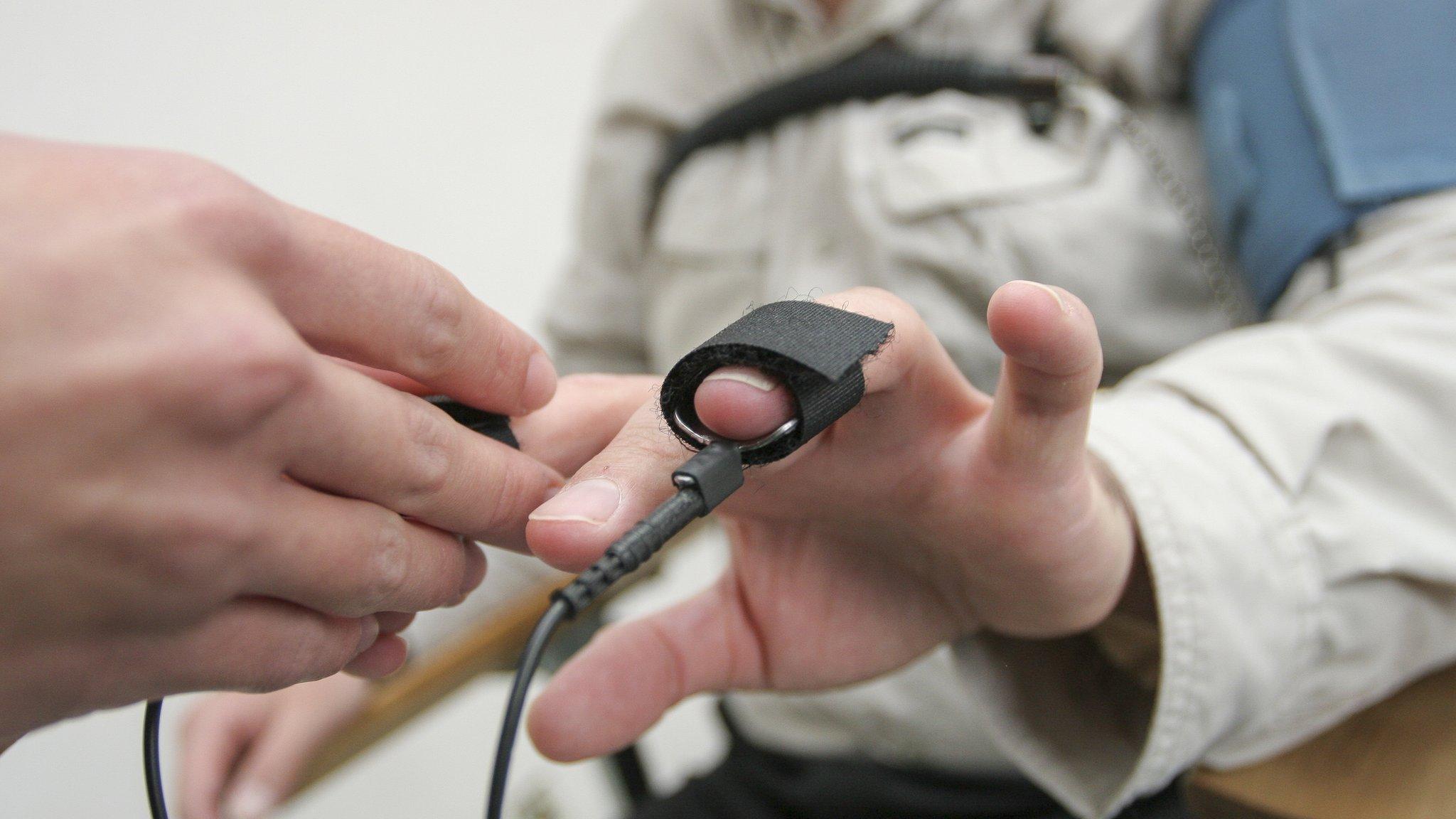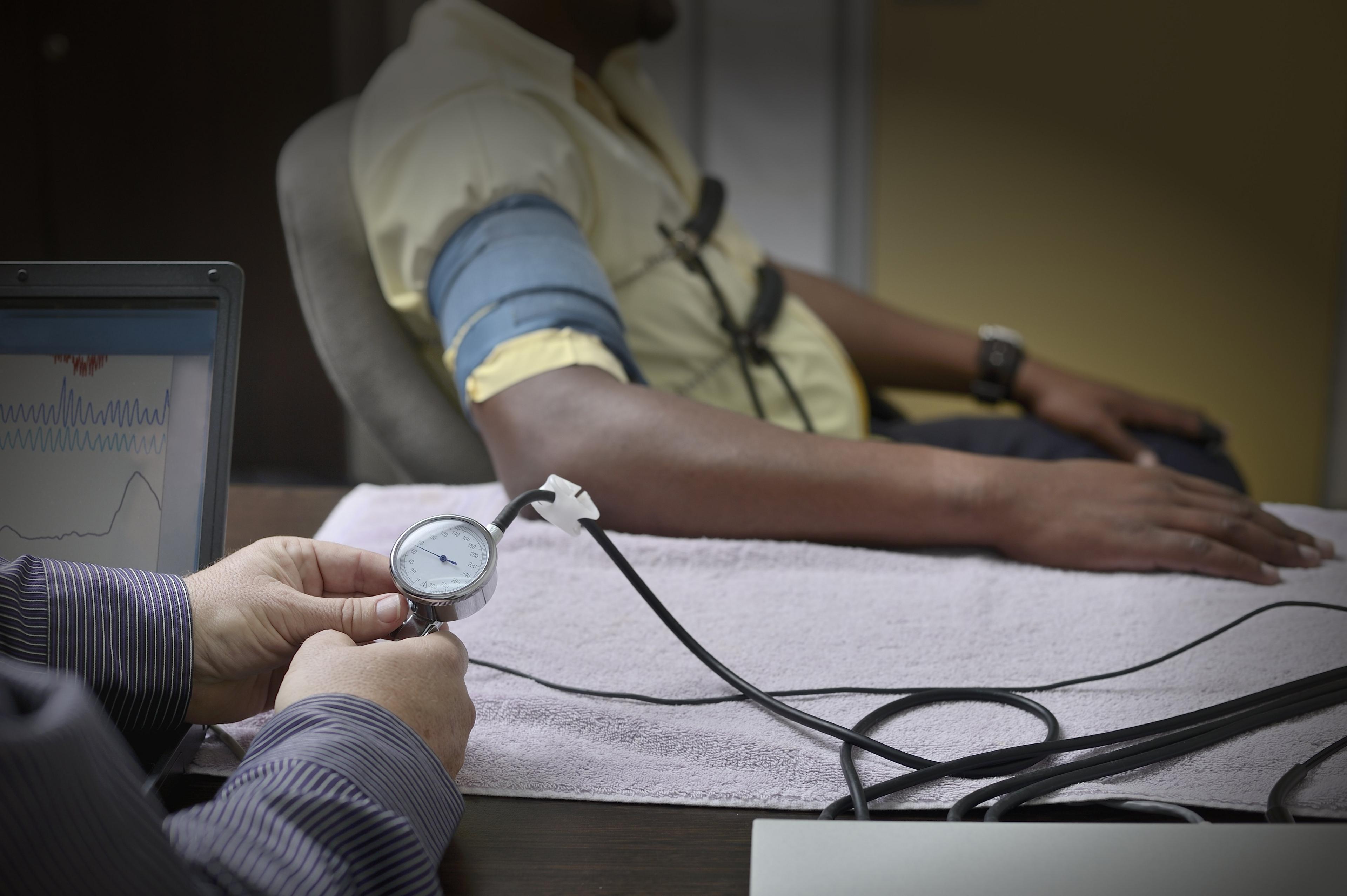How widely are lie detectors used in the UK?
- Published

Polygraph machines measure bodily responses associated with lying
The producers of ITV's Jeremy Kyle Show have been labelled as "irresponsible" after admitting that lie detector tests used on the show were "not 100% accurate".
Speaking at a parliamentary inquiry launched after the death of a participant who failed a test on the show, the channel's chief executive Dame Carolyn McCall said they would not make any similar series involving lie detectors in the future.
What are lie detectors?
Lie detectors - or polygraphs - measure a number of bodily responses, such as blood pressure or sweaty palms, to detect traits associated with lying.
Advocates claim that when carried out by professionals in the right conditions, the accuracy is estimated to be between 80 and 90%.
But the American Psychological Association advises that people should "remain sceptical about any conclusion wrung from a polygraph".
No-one claims the tests are 100% accurate, but lie detectors can be and are used in the UK.
Who uses lie detector tests?
The most high-profile use in the UK is by the probation service.
The option to use lie detector tests on serious sex offenders on parole in England and Wales has been in place since 2007 but, since 2014, mandatory tests can be attached to an offender's release conditions.
It came after Ministry of Justice research showed, external that sex offenders taking a test were twice as likely to admit breaching release conditions when a polygraph was used.
If a sex offender fails a lie detector test, it is "not conclusive proof that the individual is lying", but it could lead to further investigation or supervision.
In February 2018, the Ministry of Justice said that, since the tests had been introduced, 166 sex offenders had been returned to jail after polygraphs flagged concerns about their behaviour and had then faced further investigations.
Around 50 people were being tested each month.
Similar measures are currently being considered for released domestic abuse offenders in England and Wales as part of the Domestic Abuse Bill., external
At the beginning of the year, a former chief of UK immigration enforcement said polygraphs should also be used to spot "signs of deception" by some asylum seekers, but the Home Office rejected the idea.
Probation services and police forces in Scotland and Northern Ireland currently do not use lie detectors
Can lie detector results be used as evidence?
Once a polygraph test is taken, the results cannot be used in the courts to prove a case in the UK, says Ian Kelcey, a criminal law solicitor.
"It is not admissible in this country as evidence. Some states in America allow them, but you're never going to get it admitted here."
Police can use polygraphs to assist investigations and monitor certain high-risk individuals.
Currently, seven police forces in England and Wales use them with existing sex offenders and occasionally suspects, but this remains voluntary.

Lie detector results cannot be used in criminal court proceedings
Michelle Skeer, the National Police Chiefs' Council's lead on managing sexual offenders, said: "Work is currently ongoing to understand the benefits of polygraph within policing and whether its use could be expanded in the future. Findings from this research will be evaluated this year.
"Any continued use of polygraph or its expansion will be done with due oversight."
Can employers use lie detectors?
Employers are allowed to offer a lie detector test to staff, but again this must always be optional.
Elizabeth Maxwell, an employment law specialist, says that a lack of regulation or a universal standard makes their use uncharted territory.
"An employer could use it, but it would come down to whether there are reasonable grounds for suspecting gross misconduct and ensuring a fair procedure was followed.
"Polygraph results could be used [in tribunals], but are generally used to settle disputes before they reach this stage. If they do go further, it would be up to a judge to decide whether it's admissible."
Refusal to do one should not be used solely as evidence of an employee's guilt, as this is likely to be considered unfair, but it can form part of a case against an individual.



- Published25 June 2019
